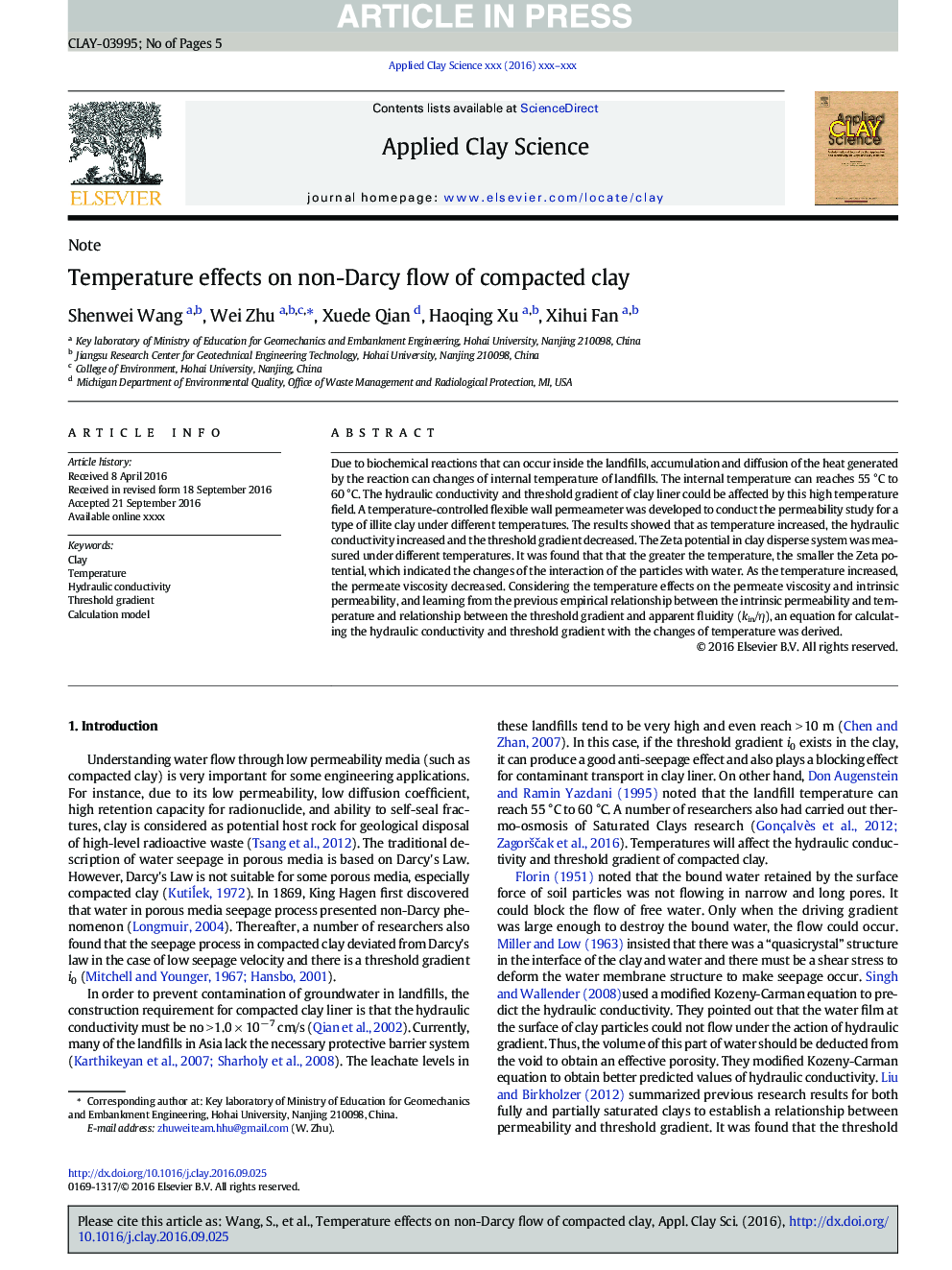| Article ID | Journal | Published Year | Pages | File Type |
|---|---|---|---|---|
| 5469005 | Applied Clay Science | 2017 | 5 Pages |
Abstract
Due to biochemical reactions that can occur inside the landfills, accumulation and diffusion of the heat generated by the reaction can changes of internal temperature of landfills. The internal temperature can reaches 55 °C to 60 °C. The hydraulic conductivity and threshold gradient of clay liner could be affected by this high temperature field. A temperature-controlled flexible wall permeameter was developed to conduct the permeability study for a type of illite clay under different temperatures. The results showed that as temperature increased, the hydraulic conductivity increased and the threshold gradient decreased. The Zeta potential in clay disperse system was measured under different temperatures. It was found that that the greater the temperature, the smaller the Zeta potential, which indicated the changes of the interaction of the particles with water. As the temperature increased, the permeate viscosity decreased. Considering the temperature effects on the permeate viscosity and intrinsic permeability, and learning from the previous empirical relationship between the intrinsic permeability and temperature and relationship between the threshold gradient and apparent fluidity (kin/η), an equation for calculating the hydraulic conductivity and threshold gradient with the changes of temperature was derived.
Related Topics
Physical Sciences and Engineering
Earth and Planetary Sciences
Geochemistry and Petrology
Authors
Shenwei Wang, Wei Zhu, Xuede Qian, Haoqing Xu, Xihui Fan,
